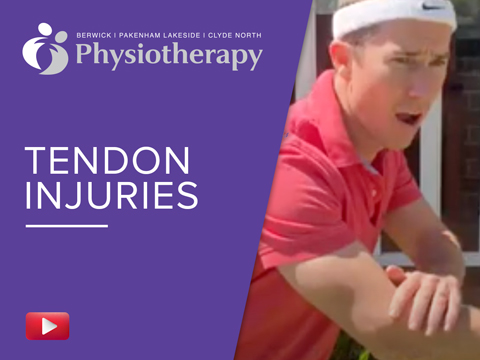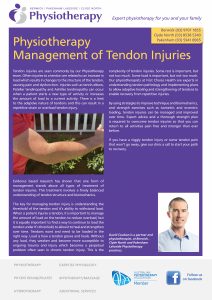Tendon injuries are seen commonly by our Physiotherapy team. Often injuries to a tendon are related to an increase in load which results in changes to the structure of the tendon, causing pain and dysfunction. Injuries such as tennis elbow, Patellar tendinopathy and Achilles tendinopathy can occur when a patient starts a new type of activity or increases the amount of load to a current activity. There is a limit to the adaptive nature of tendons and this can result in a repetitive strain or overload tendon injury.
Evidence based research has shown that one form of management stands above all types of treatment of tendon injuries. This treatment involves a finely balanced understanding of tendon structure and biomechanics.
The key for managing tendon injury is understanding the threshold of the tendon and it’s ability to withstand load. When a patient injures a tendon, it is important to manage the amount of load on the tendon to reduce overload, but it is equally important to find a way to continue to load the tendon under it’s threshold, to allow it to heal and strengthen over time. Tendons want and need to be loaded in the right way. Load is how a tendon grows and heals. Without any load, they weaken and become more susceptible to ongoing trauma and injury which becomes a perpetual problem often seen in chronic tendon injury. This is the complexity of tendon injuries. Some rest is important, but not too much. Some load is important, but not too much. Our physiotherapists at First Choice Health are experts in understanding tendon pathology and implementing plans to allow adaptive healing and strengthening of tendons to enable recovery from repetitive injuries.
By using strategies to improve technique and biomechanics, and strength exercises such as isometric and eccentric loading, tendon injuries can be managed and improved over time. Expert advice and a thorough strength plan is required to overcome tendon injuries so that you can return to all activities pain free and stronger than ever before.
If you have a niggly tendon injury or some tendon pain that won’t go away, give our clinic a call to start your path to recovery.


